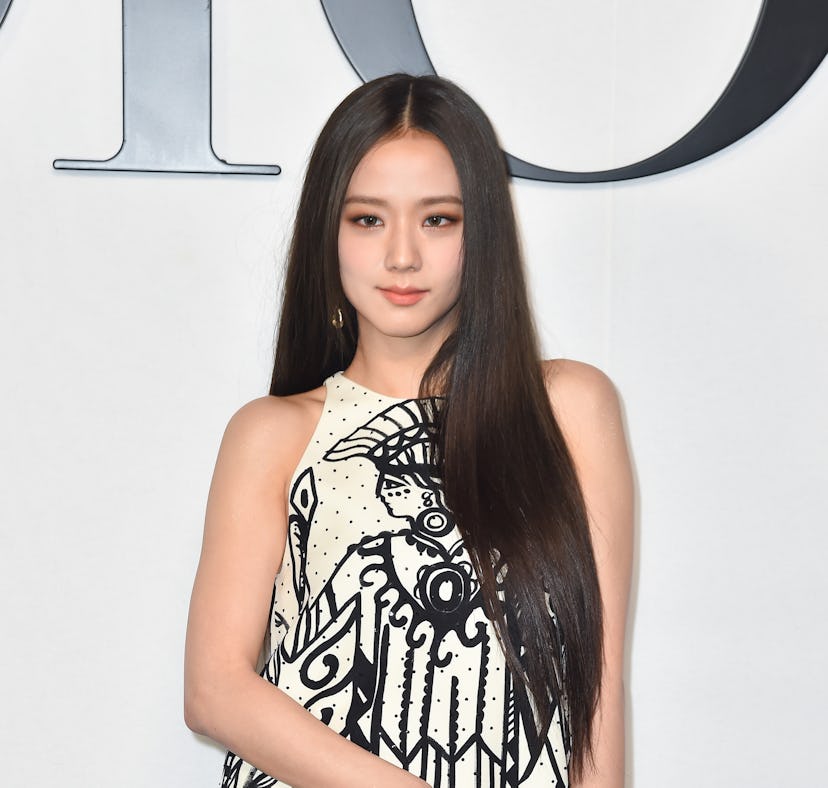
Here's Why BLACKPINK's Jisoo's K-Drama Snowdrop Is Facing Backlash
It sparked a petition calling for its cancellation.
The Joongang Tongyang Broadcasting Company’s (JTBC) newest K-drama Snowdrop, which stars Jung Hae-in and BLACKPINK’s Jisoo, has found itself in the middle of controversy. According to The Korea Herald, an online petition calling for the show’s cancelation surfaced following the series’ two-episode premiere on Dec. 18 and 19. The reason for the petition? An alleged distortion of historical facts.
Due to the backlash, Snowdrop has reportedly lost a number of sponsors, including the rice cake company Ssarijai and Heungil Furniture. On Tuesday, Dec. 21, JTBC released a statement responding to the criticism, explaining the situation has all been a “misunderstanding” and that people’s “concerns” regarding the series’ plot will be cleared up in future episodes. JTBC has also reiterated that the series is fictional, despite its historical background. If you’re a bit lost on everything that’s happened, let me explain.
The controversy began in March 2021 after a leaked synopsis of the show surfaced online, revealing Snowdrop would take place in 1987 — a pivotal year for South Korea’s pro-democracy movement. People discovered that in the series, Jung would play a North Korean spy named Im Su-ho who seeks refuge at a women’s university, where he meets Jisoo’s character, Eun Young-ro, (previously named Eun Young-cho), who mistakes him for a pro-democracy activist.
Due to the significance of the movement, the online petition, which was posted on the website Cheong Wa Dae, reportedly cited “concerns about a potential distortion of historical facts” surrounding the show. On March 26, JTBC released a statement explaining the series is “not a drama that disparages the pro-democracy movement or glamorizes being a spy or working for the NSP.” In a second statement on March 30, JTBC also clarified Jisoo’s character “is not related to [real-life pro-democracy activist] Chun Young Cho.” However, due to the mixup, they ultimately changed the character of Eun Young-cho to Eun Young-ro.
According to Korea Herald, in an online press conference on Thursday, Dec. 16, Snowdrop director Jo Hyun-tak said that the story is “of individuals and is not about politics or ideology.”
When Snowdrop finally premiered on Dec. 18 and 19, the controversy became even more widespread as a petition calling for the show’s cancellation reportedly reached over 200,000 signatures.
On Dec. 20, JTBC released another statement addressing the “false information” spreading around. “First of all, the background and motif for important incidents in Snowdrop are the time of military regime,” the network wrote in a statement, according to Soompi. “With this background, it contains a fictional story of the party in power colluding with the North Korean government in order to maintain authority. Snowdrop is a creative work that shows the personal stories of individuals who were used and victimized by those in power.”
The statement continued: “There is no spy who leads the democratization movement in Snowdrop. The male and female leads were not shown as participating in or leading the democratization movement in episodes one and two, and they do not do so in any part of the future script.
Most of the misunderstandings regarding concerns of ‘history distortion’ and ‘disparaging the democratization movement’ criticized by many people will be settled through the progress of the drama’s plot. The drama includes the production team’s intent of hoping for no repetition of an abnormal era in which individual freedom and happiness are oppressed by unjust power.”
Although they said they can’t reveal any more of the plot surrounding Snowdrop, JTBC asked viewers to keep watching the show before they draw further conclusions and criticism.